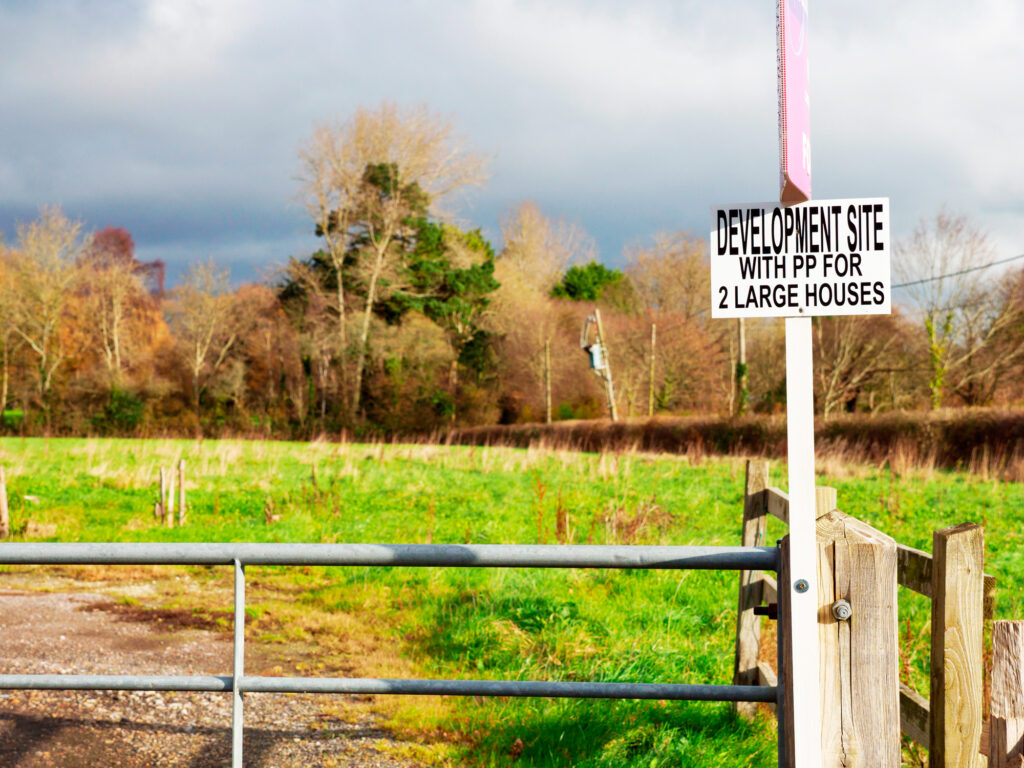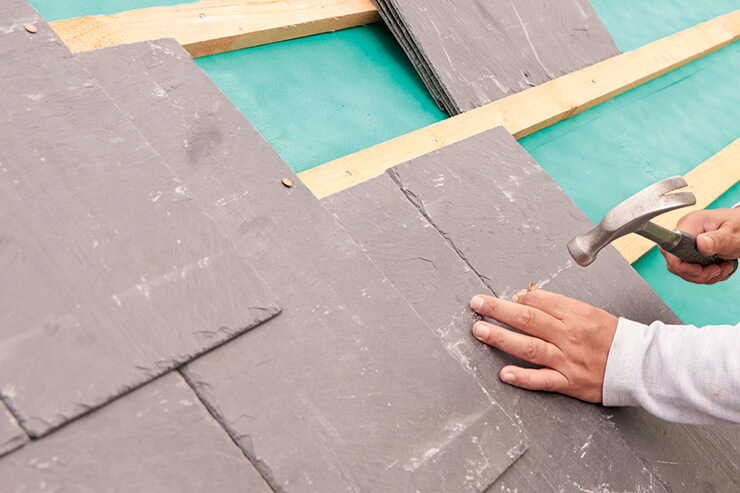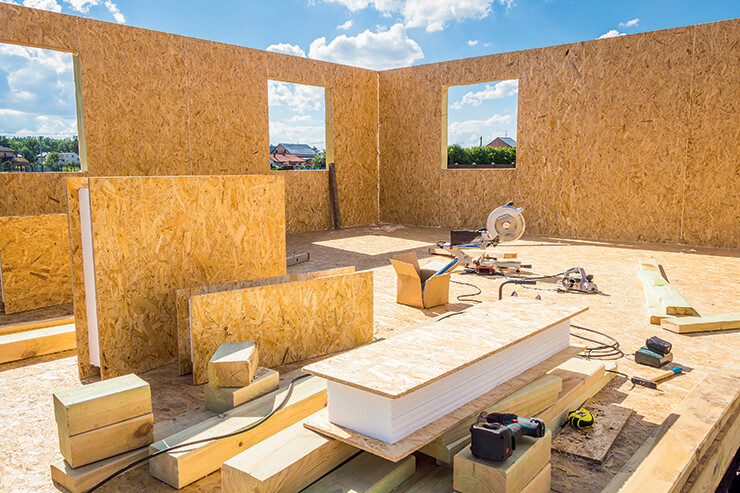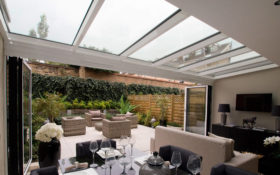
Use code BUILD for 20% off
Book here!
Use code BUILD for 20% off
Book here!The seemingly limitless reach of the internet has transformed our buying habits – and its impact stretches to the self-build and renovation market, too. No longer are we restricted to DIY sheds and local merchants. With a range of online suppliers, we can look further afield and even contemplate buying from abroad in our search for the best products and materials.
Sometimes, the items you’re looking for aren’t routinely stocked in the UK. For instance, you might be after a new piece of technology or innovative eco gadget that’s yet to catch on here. Spreading your search to other countries can open up a greater spectrum of choice – but buying abroad is not without risk, and there are a few potential pitfalls that must be avoided. Here’s what you need to know when purchasing outside the UK.
Apart from the obvious increase in choice available, one of the main drivers for buying from abroad is the potential to make significant savings. Some materials – notably tiles, ceramics and sanitaryware – can be much cheaper than in the UK. And if the exchange rate is favourable, you’ll be able to bag an even better bargain.
Many of us associate trips across the English Channel with the classic booze cruise, whereby we can take advantage of the cheaper excise duty imposed on wine, spirits etc in continental Europe. But next door to the Calais hypermarkets you’ll also see huge DIY stores, such as Leroy Merlin, which have been doing a roaring trade with day-trippers for many years. And because the UK is such a strong market for them, goods come either in suitable specifications for use over here, or with all the necessary adaptors to install them at home.
It’s not unheard of for self-builders to purchase bigger ticket items abroad, too, such as windows or even complete timber frame structures (although most of the latter are now directed through UK offices). Price may be a factor in these decisions, but in some cases you might simply feel the specification is a better match for your project goals than UK-made alternatives.

British slate is considered to be of the highest quality, but it comes with a price tag to match. Other sources include Spain, Brazil and China
When making purchases overseas, there’s a big difference between buying from within the EU and outside of it. The EU’s trade rules allow for free movement of goods within its borders, so for as long as we’re still part of the union it’s not much different to sales made in the UK.
The only real variation is the rate of VAT applied, which varies between member states. But if you’re purchasing eligible ‘fixed’ materials as part of a self-build, you can still reclaim the VAT at the rate it was applied in the country of purchase.
The elephant in the room here is Brexit and the impact leaving the EU will have on our ability to buy goods in this way. It’s by no means certain we’ll still benefit from the single market, but trade won’t just stop overnight and I expect a compromise will be reached. We’ll leave that one to the politicians to sort out; but if you’re thinking about buying from the EU, make the most of the status quo while you can.
If you’re importing products and materials from a non-EU country, such as roof slates from the likes of China and Brazil, you must ensure all the relevant customs declarations are in place to avoid delays in the clearance process. VAT paid at the port of entry can still be recovered if your project qualifies as a self-build; provided you include correctly completed customs import documentation along with your reclaim forms.
| Tax | When is it applied? | When is it payable? |
|---|---|---|
| VAT
Can be reclaimed if items are being bought for a qualifying new build or conversion (see VAT Notice 431 for details). |
VAT is payable on any goods imported from outside the UK. Applied at the corresponding rate in the EU country of purchase or at the port of entry into the EU. | It is levied on goods costing more than £15, and payable on the full value including: the price of the goods; postage, packing and insurance; and any duty owed. |
| Customs duty
Can be reclaimed if goods are subsequently returned, or if too much has been paid |
Customs duty is payable on goods imported into the UK from outside the EU. Goods should be declared correctly by the seller. | There is no charge for items under £135, or if the total duty incurred is less than £7. |
The customs declaration itself would normally be completed by the seller, but you can also do this yourself by writing ‘goods to be declared by the importer’ on the form. You will then be asked to submit the relevant details. The process can take four weeks to complete if you do it yourself. Note that you can’t reclaim any duty paid.
As with anything to do with tax and the self-builder, it is best to be clear about what you’re doing. In my experience, HMRC can be very helpful when you’re open about your intentions, but won’t take kindly to attempts to game the system. If you have any queries or concerns, then check first by calling the HMRC helpline on 0300 200 3700.
While you can often make savings when buying abroad, you do need to be aware of extra costs. Transferring money overseas usually incurs a fee and currency fluctuations can make a big difference to what you actually pay.
For smaller items, the nominal cost of using a credit card, bank transfer or online service such as PayPal shouldn’t be too onerous. But if you’re buying a complete timber frame or kit house from the continent and face a percentage charge on the total price, the sums could be significant.
In this instance, using one of the larger foreign exchange brokers could pay dividends. By shopping around you can find Financial Services Authority (FSA) approved international payment companies that will only charge for transactions under £2,500 – and even then the fee can be under £10.
Since the result of the referendum on our membership of the EU was announced, the pound has plummeted against both the euro and the dollar – and as a result, our buying power abroad has been seriously reduced. However, the financial markets are fickle and changes to the exchange rate can work for you as well as against you.

It’s not unheard of for self-builders to source their entire structural system overseas; although many of the better-known firms operate through UK agents
One way to deal with currency fluctuations is to forward-buy materials at an agreed exchange rate, so you can at least get some certainty on the price. This will protect you against rate changes (and therefore the amount payable) between ordering and invoicing
Admittedly the fluctuations could be up or down, but if you’re working to a tight budget you might prefer to know the exact costs and plan your spending accordingly, rather than risk sudden hikes.
If you intend to use your credit or debit card for overseas purchases, it is sensible to advise your bank or card issuer so they’re aware of what’s going on. They are quite hot on detecting fraudulent use, so unexpected foreign activity might result in payment being declined.
Beyond the pure financials, there are a few other things to think about before you purchase goods abroad. One is returns policies, as it’s often difficult and prohibitively expensive to send items back. With that in mind it’s worth triple-checking that what you’re buying is the right thing (and the right size).
If you have paid duty and VAT on items you’re returning, these can be reclaimed through HMRC. It sounds obvious, but check the delivery terms, too, as this could affect lead times and impact on your build schedule.
Compatibility is crucial, too. Most continental items will be built to the same metric units as in the UK, so kitchen and bathroom units should be a universal fit. Couplings can be different, however, so make sure suitable adaptors are included for connecting to UK services.
For electrical items, EU voltages are similar to the UK at 220-240v, so most appliances will run without modification. But some items from North America, for example, will require a 110-120v supply, which won’t work in the UK without a transformer.
In terms of quality, European products should carry the same or equivalent certifications as UK goods, but this may not always be the case with some non-EU items. If you’re specifying a structural product, building control may want to see BBA certification – but otherwise, as long as it meets the basic requirements, you shouldn’t have any headaches.
Always ascertain the status of guarantees and warranties on items you buy overseas. Insurance-backed warranties may only be valid in the country of purchase, but many companies have an international presence and will be happy to extend cover to UK installations. It’s worth double checking the situation with your supplier before you buy.


Comments are closed.